While some believe that complete automation is the way of the future, others are concerned that they will lose out on personal touches.
Then what is the solution?
To address this, we organized a webinar with Sandeep T. Mohan, Head of Inside Sales, Outplay on Finding the Right Approach to Sales Automation in 2024. The best practices and use cases where sales automation is essential:
What is sales automation?
Sales automation is the process of using software, artificial intelligence, and digital tools to speed up manual, time-consuming sales operations. It enables the sales team to concentrate more on crucial duties like forging connections and nurturing leads.
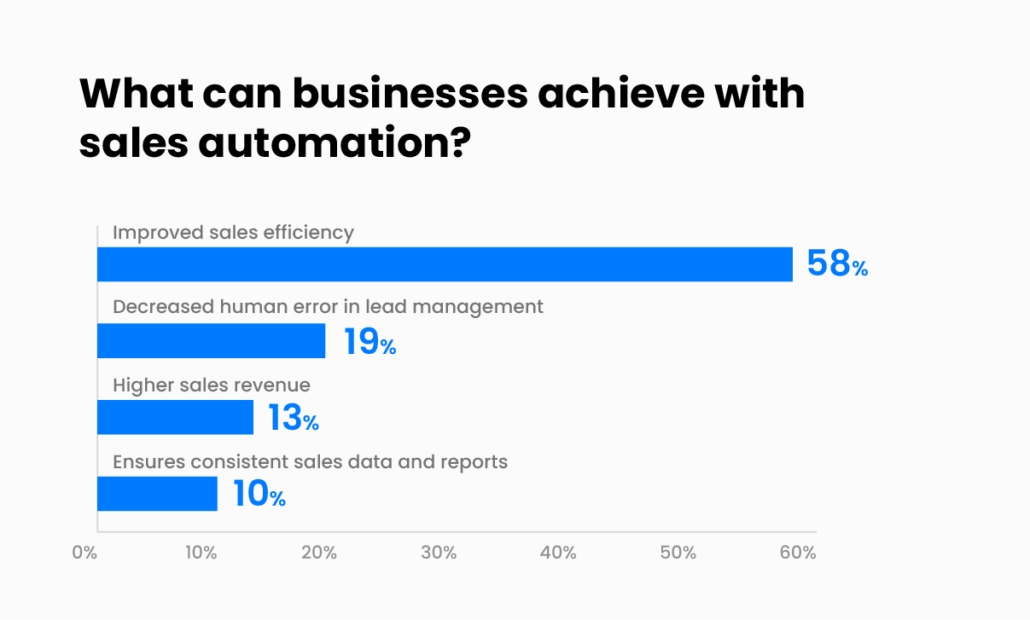
Not all businesses that install CRM use it to accomplish complete sales automation because they believe it to be an expensive endeavor.
However, investing in automation today will result in future gains such as time savings and increased productivity. The following are the benefits of sales automation.
How important is automation in today’s sales functions?
In 2022, sales processes at the best and biggest businesses are becoming more and more automated, providing their sales representatives more time to focus on closing deals.
However, most sales people still devote about 50% of their time to activities that could be automated.
We asked 101 salespeople about the tasks that take up the majority of their time.
The response was surprising.
34% of sales reps said lead collection and distribution and engagement activities are the ones that consume a lot of their time.
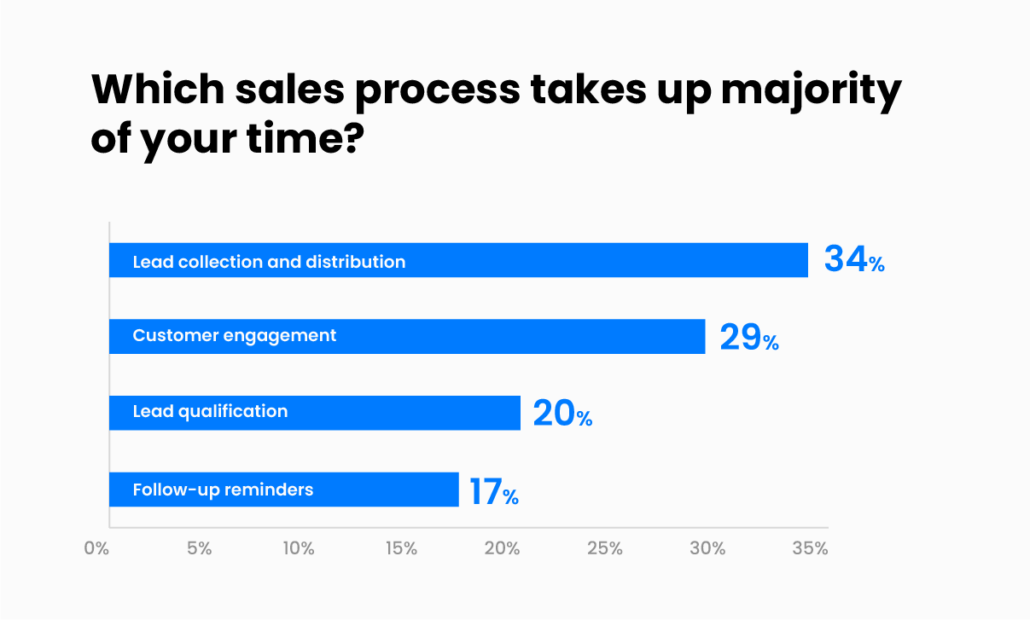
Sales automation is already starting to play a significant part in the sales process, with more than 80% of business executives exploring sales automation solutions.
Why?
It’s because they understand how crucial it is for them to optimize their sales management processes.
Here are some startling automation figures that demonstrate how technology can boost productivity within your business.
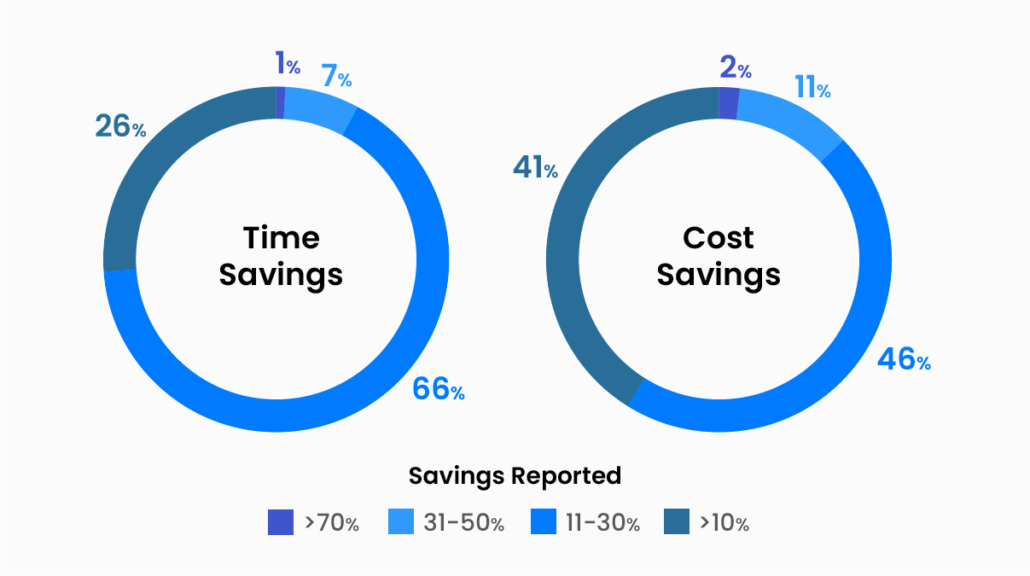
Challenges that businesses face with sales automation, and how can one get past these obstacles?
With automation, a big challenge is understanding what needs to be automated. Not everything in sales needs to be automated; some things still need human touch. This is to ensure that there are some checks in place and that there is a Trueman element to sales.
There are many tools in the market that can help automate parts of the process, but you still need to hold back on certain processes to make sure there is a human element to it.
Let me give you an example.
Personalized emails are six times more likely to result in a conversion and have click-through rates that are 2.5 times higher. In addition, 73% of consumers said they want to patronize businesses that use their personal data to make their interactions more relevant.
In the long term, you might see a reduction in marketing and sales staff as your business refocuses on handling automation tools specifically. Additionally, it’s likely your business will need a competent software engineer for installation and maintenance in the short term.
However, before you start, sit down and define your quantitative goals so you can compare them to any future advantages from automation. Cover all other pertinent topics, including expenses, hiring requirements, outsourcing needs, hazards, and so on.
How can a business benefit from sales automation?
Every company has unique requirements. However, sales automation software has a number of advantages. An organization would gain from it in the following ways:
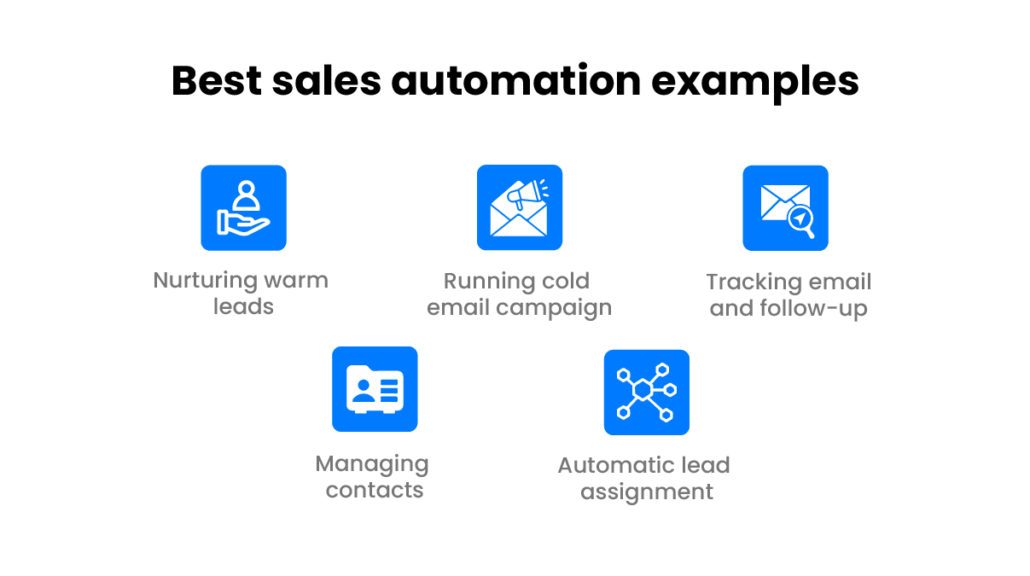
- Improve your sales team’s performance
You may anticipate that sales representatives will concentrate on closing deals when the pressure of tedious and repeated work is lifted. Thus, resulting in more sales and revenues.
- Increase customer satisfaction
.
Automation quickens processes and reduces reaction times. Prospects can receive a quicker response. Prospects would naturally be pleased and more likely to convert as a result. So let repetitious chores be handled for you by sales automation solutions.
- Ensure data consistency
In order to avoid discrepancies, the business must maintain consistency with the sales data. Erroneous data may also cause disparity in results. Automation enables you to ensure data consistency across systems you use. It also helps you save time in accessing the required data.
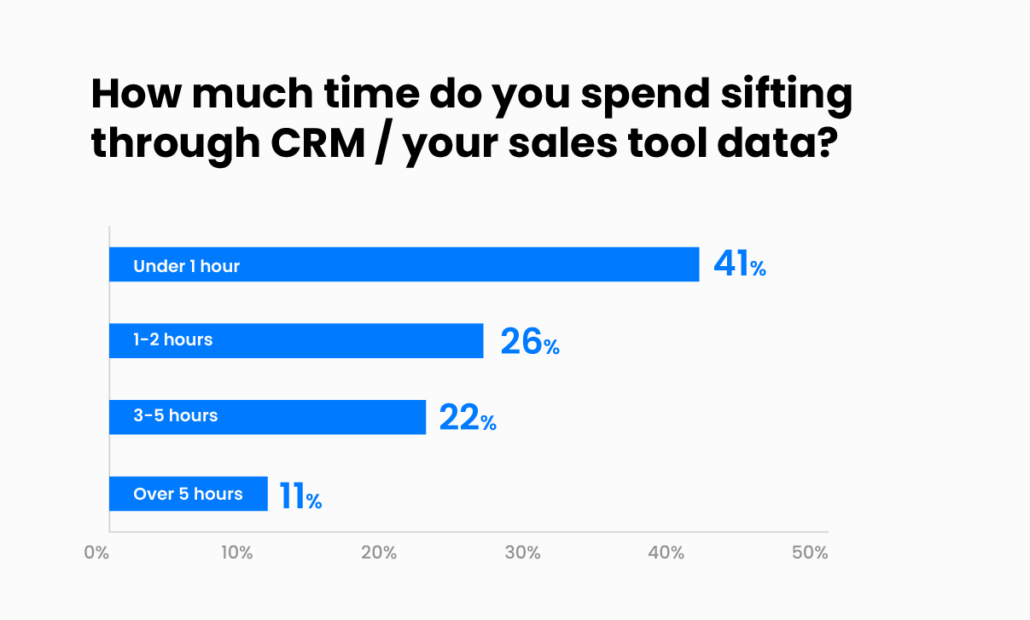
- Easily store and access client information
Utilizing sales automation software allows you to gather enough customer statistics. You can better grasp client needs with the use of this data. Creating tactics that assist you in closing more deals is simpler once you are aware of their needs and desires.
- Identify opportunities
Sales automation enables you to weed out potential clients who don’t seem promising enough. By doing this, you are ensuring that the sales funnel only contains prospects that are interested in your product or service.
Learn more about the sales automation examples you can implement in your business processes.
Check out LeadSquared’s Sales CRM if you’re looking forward to automate your sales processes. It aids in the creation of workflows and client journeys for a variety of your offered goods and services. What’s best? You can accomplish this with zero lines of code!
Audience Questions
Can automation help businesses increase customer lifetime value?
Yes, absolutely the systems are powerful and tell you what needs to be changed to add more value. Customers are looking for value and the person selling the product has a team to help them with that value. Automation is just the enabler.
How tough do you think it would be to move an organization following a conventional sales method into the new age of automation and CRM?
It depends on your end customer. If your consumers have moved to a digital medium, then it is ideal that you also move to the digital medium ASAP. However, if they are still a brick-and-mortar company, you ought to go back to your drawing board and do door-to-door selling.
How does one differentiate between a CRM and a sales engagement platform?
If you’re looking for a tool to take action with, like making calls or sending emails, and want to track engagement metrics, then you want a sales engagement platform. If you’re more interested in tracking the relationships with your prospects, then you want a CRM. Although the two systems can help you accomplish customer engagement and relationship management, theoretically, that’s the basic difference between a CRM and a sales engagement platform.
Speaker

Sandeep T. Mohan
Head of Inside Sales, Outplay








